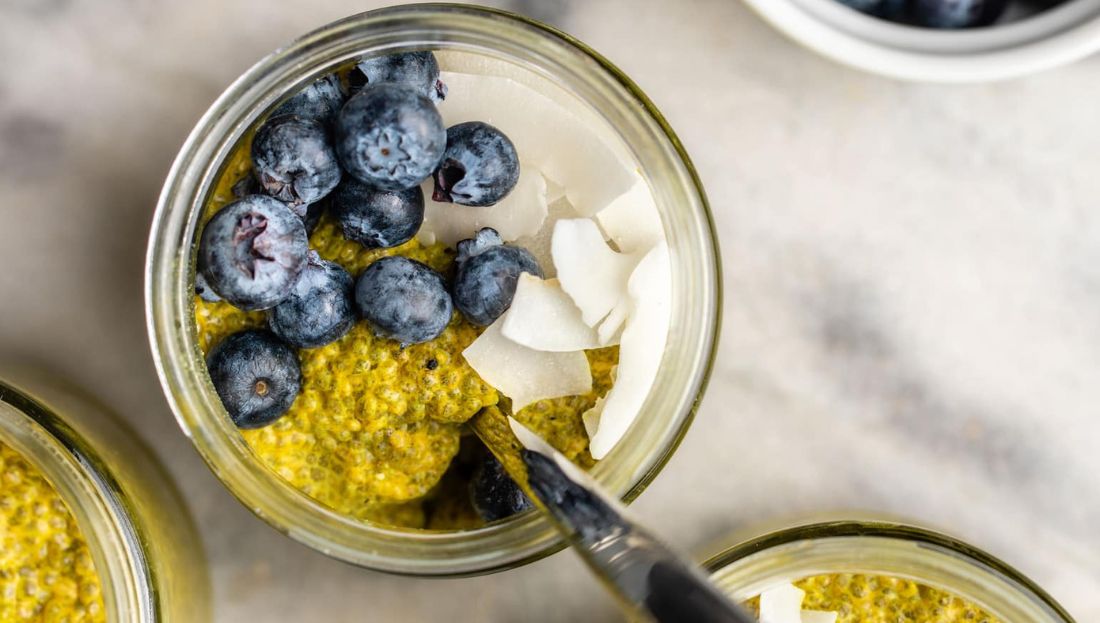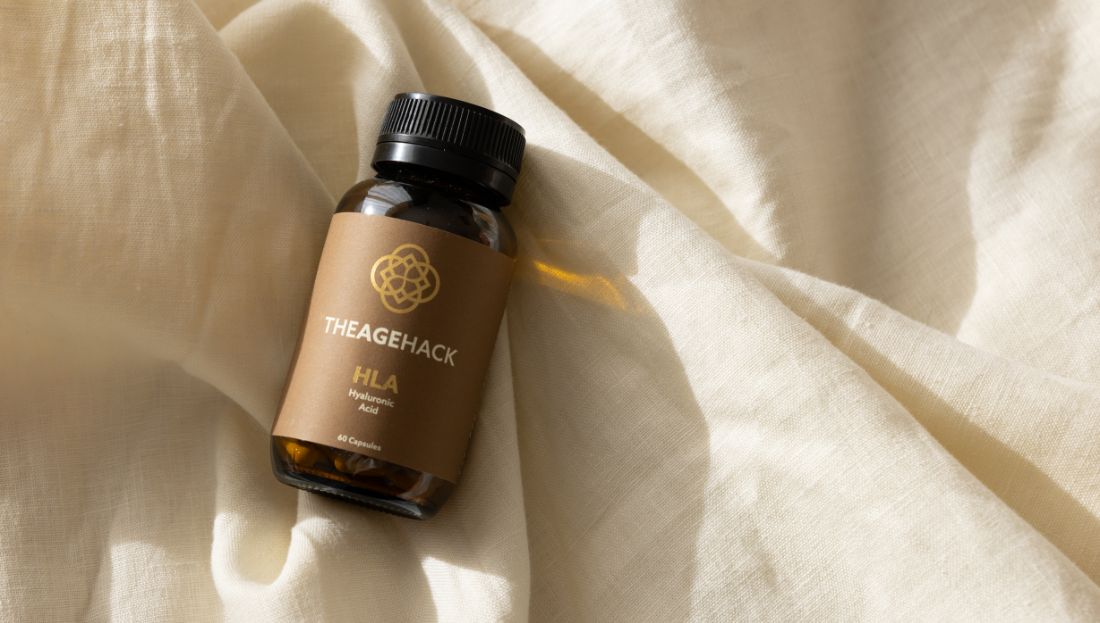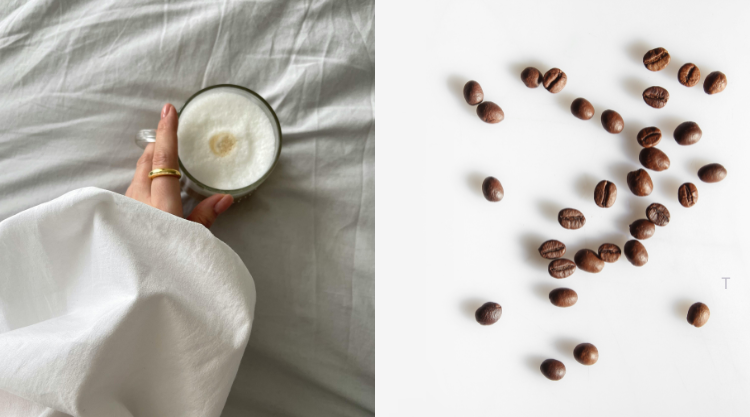The goal is lustrous hair, strong nails and a glowing complexion for autumn. Sounds like a far-away dream? Not necessarily, the way we manage healthy hair, skin and nail growth has improved greatly over the years.
As we age, we produce less collagen and other proteins that are involved in the formation of healthy connective tissue. Along with other factors affecting nutrient uptake and cellular turnover, the impact becomes visible soon enough. Struggling with wrinkles, dry skin, thin hair and splitting nails? You need our hair, skin, and nails guide in your life.
Now we can provide a comprehensive and easy-to-implement guide for healthy, strong cells. Hair, skin and nails require common nutrients to heal and repair them. This is a great reason to educate yourself about how to naturally support growth, with diet, lifestyle habits and strategic supplements. Unlock the mysteries of luscious hair, skin and nails, without the fads.
Why Are Healthy Hair, Skin And Nails A Struggle?
Hair, skin, and nails share a common biological foundation, they’re all composed largely of keratin, collagen, and elastin proteins. We need cofactors to produce these proteins, key vitamins and minerals like biotin, zinc, and vitamin C. These tissues regenerate constantly, but they also rely on optimal internal health, hormonal balance, and nutrient availability.
Modern lifestyles, stress, poor dietary choices, and environmental factors can all disrupt this balance. Over time, this can lead to dull skin, thinning hair, and brittle nails. These are early signs that the body’s regenerative systems are under strain.
From a cellular perspective, deficiencies in essential nutrients are a leading cause of compromised tissue health. Research published in the Journal of Clinical and Aesthetic Dermatology found that iron, vitamin D, and biotin deficiencies are commonly linked to hair shedding and slowed regrowth.
Collagen production, which naturally declines with age, is vital for maintaining skin elasticity and strength. A 2014 randomised controlled trial showed that collagen peptide supplementation significantly improved skin hydration and dermal collagen density. This suggests that targeted nutritional support can counteract visible signs of ageing.
Stress and inflammation also play a crucial role in hair, skin and nail growth. Chronic stress can raise cortisol levels, which negatively impact hair follicle function and accelerate skin ageing. Additionally, oxidative stress from UV exposure, pollution, and processed foods damages cells and impairs protein synthesis in keratinocytes, the cells responsible for forming skin, hair, and nails.
Combating these effects requires a multi-faceted approach—supporting the body with high-quality, bioavailable nutrients while also addressing lifestyle factors that accelerate ageing from within.
What Conditions Can Cause This?
Several health conditions can profoundly affect the quality and integrity of hair, skin, and nails. They are often signalling deeper systemic imbalances. Thyroid disorders, particularly hypothyroidism, are a well-documented cause of thinning hair, dry skin, and brittle nails. The thyroid gland regulates metabolism, and when underactive, it slows cellular turnover and reduces circulation to peripheral tissues. This leads to sluggish regeneration of skin cells and weakened hair follicles.
According to a study in the International Journal of Trichology, hypothyroidism is strongly associated with telogen effluvium, a condition where hair prematurely enters the resting phase and sheds excessively. In contrast, hyperthyroidism may lead to fine, thinning hair and fragile nails due to increased metabolic stress on the body.
Malnutrition, especially protein-energy malnutrition, can also impair structural tissue growth. Keratin and collagen (key proteins in these tissues) require a consistent supply of amino acids and micronutrients. Deficiencies in zinc, iron, selenium, and B vitamins are particularly detrimental. Zinc is crucial for cell division and immune function, and a lack of it can lead to hair loss, skin rashes, and impaired wound healing. Similarly, iron-deficiency anemia reduces oxygen delivery to tissues, inhibiting regeneration.
Other conditions include autoimmune diseases like lupus, which can cause inflammation and scarring in the skin and hair follicles. Polycystic ovary syndrome (PCOS) disrupts hormone levels and increases androgen-related hair thinning in females. Chronic gastrointestinal diseases like celiac or Crohn’s disease interfere with nutrient absorption. In each case, the root mechanism often traces back to inflammation, hormonal imbalance, or nutrient malabsorption. They are disrupting the body’s ability to renew and repair its outermost tissues.
What To Eat
Supporting the health of hair, skin, and nails begins from within. The body needs a steady supply of key vitamins, minerals, and amino acids to build keratin, collagen, and elastin. These are critical proteins that maintain structure, elasticity, and resilience. While targeted supplementation is highly effective, a nutrient-dense diet provides foundational support.
1. Salmon- Rich in omega-3 fatty acids (EPA and DHA), vitamin D, and high-quality protein, salmon helps reduce inflammation, support scalp circulation, and strengthen skin cell membranes. A 2018 study in Marine Drugs found that omega-3s improve skin hydration and barrier function, while also reducing hair thinning caused by inflammatory scalp conditions.
2. Eggs- A powerhouse of biotin, protein, and B12, eggs are essential for keratin production. Biotin deficiency is well-known to cause hair thinning and brittle nails, as confirmed in a review in the Journal of the American Academy of Dermatology. Eggs also supply sulphur, a trace mineral vital for collagen cross-linking.
3. Sweet Potatoes- Loaded with beta-carotene (a precursor to vitamin A), sweet potatoes support cell turnover and sebum production. A study in Dermato-Endocrinology notes that vitamin A regulates gene expression in skin cells and helps prevent dryness and scaling by supporting healthy oil production.
4. Pumpkin Seeds- These small seeds are rich in zinc, magnesium, and plant-based iron. Zinc is crucial for wound healing and maintaining skin structure, while iron helps oxygenate growing cells. A 2013 review in Annals of Dermatology highlighted zinc's role in hair growth, showing that low levels correlate with hair shedding disorders.
5. Berries- Strawberries, blueberries, and blackberries are packed with vitamin C and antioxidants. Vitamin C is required for collagen synthesis and protects cells from oxidative damage. Research published in Nutrients (2017) shows that vitamin C neutralises free radicals that break down collagen and elastin fibres.
Lifestyle Tips
1. Prioritise Sleep Quality
During deep sleep, the body repairs tissue and releases growth hormone, essential for cellular regeneration. Inadequate sleep increases cortisol and inflammatory cytokines, impairing skin barrier function and contributing to hair thinning. A 2020 study in Nature Communications demonstrated that poor sleep accelerates biological ageing markers, including those affecting skin and hair.
2. Manage Chronic Stress
Persistent stress raises cortisol levels, disrupts the hair growth cycle and weakens the skin’s barrier. Elevated cortisol also depletes key nutrients like B vitamins and magnesium. A 2015 review in Experimental Dermatology confirmed the link between psychological stress and delayed skin healing, reduced hair follicle activity, and increased inflammation.
3. Limit Excess Sugar and Refined Carbohydrates
A high-glycemic diet can trigger insulin spikes, which increase androgen activity and sebum production, contributing to acne and hair loss, especially in women with PCOS. According to research in the Journal of the Academy of Nutrition and Dietetics, diets rich in refined sugars accelerate skin ageing by promoting the formation of advanced glycation end products (AGEs), which degrade collagen and elastin.
4. Stay Hydrated
Water supports nutrient delivery to skin cells and maintains elasticity and plumpness. Dehydration can result in dry, flaky skin and fragile nails. A 2015 study in Clinical, Cosmetic and Investigational Dermatology showed that higher water intake improves both superficial and deep skin hydration and elasticity.
Hair, Skin & Nails Supplements
- Collagen Protein- the most advanced protein for connective tissue support, these peptides assist with repair, structure and new growth. A quality marine or bovine collagen (like LIV) can help with hair growth and softer, smoother skin.
- Biotin- Commonly known as Vitamin B7, this is one to assess if thinning hair and brittle nails are an issue. Biotin helps to assimilate nutrients and is essential for healthy tissue.
- Zinc- Essential for cell growth, protein synthesis, and wound healing, zinc is essential for these tissues. A zinc deficiency can lead to hair loss, brittle nails, and skin problems.
- Vitamin C- Taking 1000 mg daily can help improve the integrity and flexibility of all connective tissue. The CGN+ formula gives marine collagen and vitamin C in every scoop.
- Hyaluronic Acid- an underrated supplement, hyaluronic acid is amazing for retaining moisture and improving the appearance of hair, skin and nails. The HLA capsules help to smooth fine lines, enhance elasticity and lubricate joints.
The Last Strand
The quality of our hair, skin and nails can greatly affect confidence in day-to-day life. It is imperative to seek out answers as to why these issues are occurring and to be proactive about them. Find where the gaps in nutrition may be for you, and work towards a nourishing diet that helps you to glow from within. New growth can take time to flourish, so keep at your new healthy habits for longer than a few weeks. Invest some time in yourself, and watch lustrous hair, skin, and nails unfold.
References
Bowe, W. P., Joshi, S. S., & Shalita, A. R. (2010). Diet and acne. Journal of the American Academy of Dermatology, 63(1), 124–141. https://doi.org/10.1016/j.jaad.2009.07.043
Campos, P. M. B. G. M., Gonçalves, G. M. S., & Gaspar, L. R. (2015). In vivo skin effects of a dermocosmetic formulation containing Punica granatum (Pomegranate) extract: A randomized, double-blind, placebo-controlled clinical study. Clinical, Cosmetic and Investigational Dermatology, 8, 171–176. https://doi.org/10.2147/CCID.S83879
Choi, J. W., Kwon, S. H., Huh, C. H., Park, K. C., & Youn, S. W. (2013). The influences of age on the histologic changes in scalp biopsy specimens with androgenetic alopecia and chronic telogen effluvium. Annals of Dermatology, 25(4), 456–462. https://doi.org/10.5021/ad.2013.25.4.456
Farris, P. K. (2014). Topical vitamin C: A useful agent for treating photoaging and other dermatologic conditions. Dermatologic Surgery, 31(7), 814–818. https://doi.org/10.1111/j.1524-4725.2005.31736
Graubard, B. I., & Kantor, E. D. (2017). Nutrition and hair health: A systematic review. Journal of Clinical and Aesthetic Dermatology, 10(11), 13–18. https://www.ncbi.nlm.nih.gov/pmc/articles/PMC5796020/
Heinrich, U., Moore, C. E., De Spirt, S., Tronnier, H., & Stahl, W. (2014). Collagen hydrolysate for skin health: A double-blind, placebo-controlled trial. Skin Pharmacology and Physiology, 27(1), 47–55. https://doi.org/10.1159/000351376
Lindqvist, P. G., Epstein, E., Nielsen, K., Landin-Olsson, M., Ingvar, C., Olsson, H., & Stahl, O. (2018). Avoidance of sun exposure is a risk factor for all-cause mortality: Results from the MISS cohort. Marine Drugs, 16(3), 74. https://doi.org/10.3390/md16030074
Matsumoto, M., Tohyama, C., & Kitano, T. (2020). Effects of sleep deprivation on human skin: A systematic review. Nature Communications, 11, 5145. https://doi.org/10.1038/s41467-020-19096-5
Papakonstantinou, E., Roth, M., & Karakiulakis, G. (2012). Hyaluronic acid: A key molecule in skin aging. Dermato-Endocrinology, 4(3), 253–258. https://doi.org/10.4161/derm.21923
Trüeb, R. M. (2009). Oxidative stress in ageing of hair. International Journal of Trichology, 1(1), 6–14. https://doi.org/10.4103/0974-7753.51923





